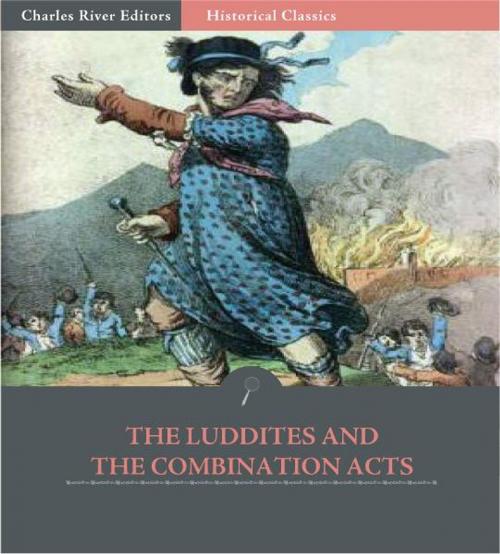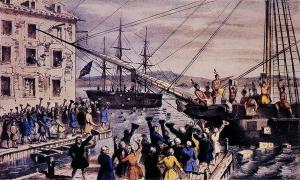| Author: | Various Authors | ISBN: | 9781619824126 |
| Publisher: | Charles River Editors | Publication: | February 17, 2012 |
| Imprint: | Language: | English |
| Author: | Various Authors |
| ISBN: | 9781619824126 |
| Publisher: | Charles River Editors |
| Publication: | February 17, 2012 |
| Imprint: | |
| Language: | English |
The Luddites were a social movement of 19th-century English textile artisans who protested often by destroying mechanized looms against the changes produced by the Industrial Revolution, which they felt were leaving them without work and changing their way of life. The movement was named after General Ned Ludd or King Ludd, a mythical figure who, like Robin Hood, was reputed to live in Sherwood Forest. The strike wave which broke out after the repeal of the Combination Act was replaced by a new Combination Act in 1825. The new Act narrowly defined the rights of trade unions as meeting to bargain over wages and conditions. Anything outside these limits was liable to prosecution as criminal conspiracy in restraint of trade. Trade unionists were not allowed to "molest", "obstruct", or intimidate" others. As a result, "Machine breaking" (industrial sabotage) was subsequently made a capital crime, and at one time, there were more British troops fighting the Luddites than Napoleon I on the Iberian Peninsula. Many of the ideas that were encompassed within the Luddite Movement have been studied and evaluated in modern economics literature. The concept of "Skill Biased Technological Change" (SBTC) posits that technology contributes to the de-skilling of routine, manual tasks. This edition of The Luddites and the Combination Acts is specially formatted with a Table of Contents.
The Luddites were a social movement of 19th-century English textile artisans who protested often by destroying mechanized looms against the changes produced by the Industrial Revolution, which they felt were leaving them without work and changing their way of life. The movement was named after General Ned Ludd or King Ludd, a mythical figure who, like Robin Hood, was reputed to live in Sherwood Forest. The strike wave which broke out after the repeal of the Combination Act was replaced by a new Combination Act in 1825. The new Act narrowly defined the rights of trade unions as meeting to bargain over wages and conditions. Anything outside these limits was liable to prosecution as criminal conspiracy in restraint of trade. Trade unionists were not allowed to "molest", "obstruct", or intimidate" others. As a result, "Machine breaking" (industrial sabotage) was subsequently made a capital crime, and at one time, there were more British troops fighting the Luddites than Napoleon I on the Iberian Peninsula. Many of the ideas that were encompassed within the Luddite Movement have been studied and evaluated in modern economics literature. The concept of "Skill Biased Technological Change" (SBTC) posits that technology contributes to the de-skilling of routine, manual tasks. This edition of The Luddites and the Combination Acts is specially formatted with a Table of Contents.















